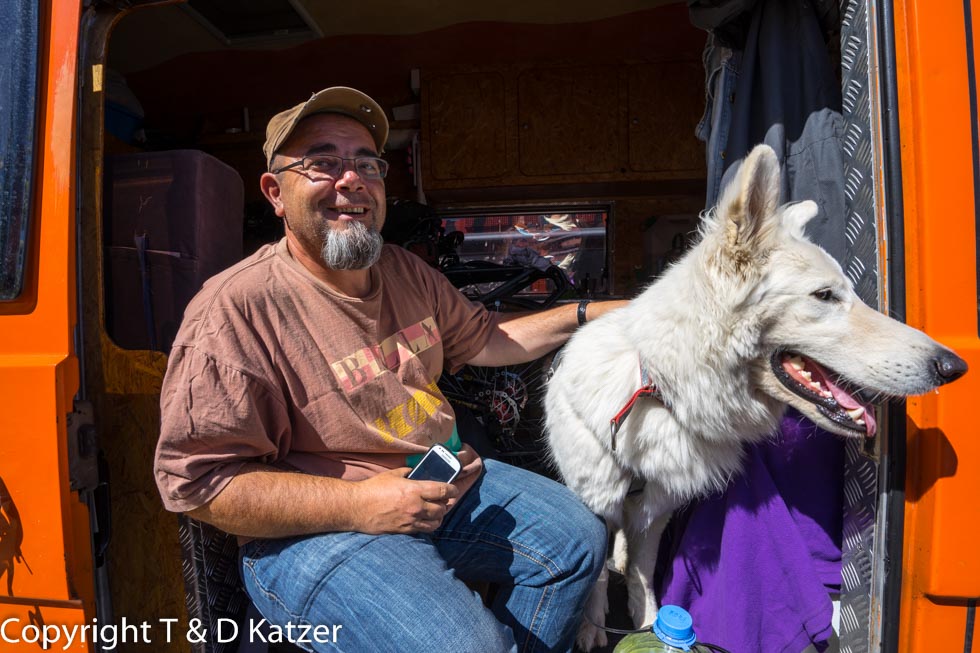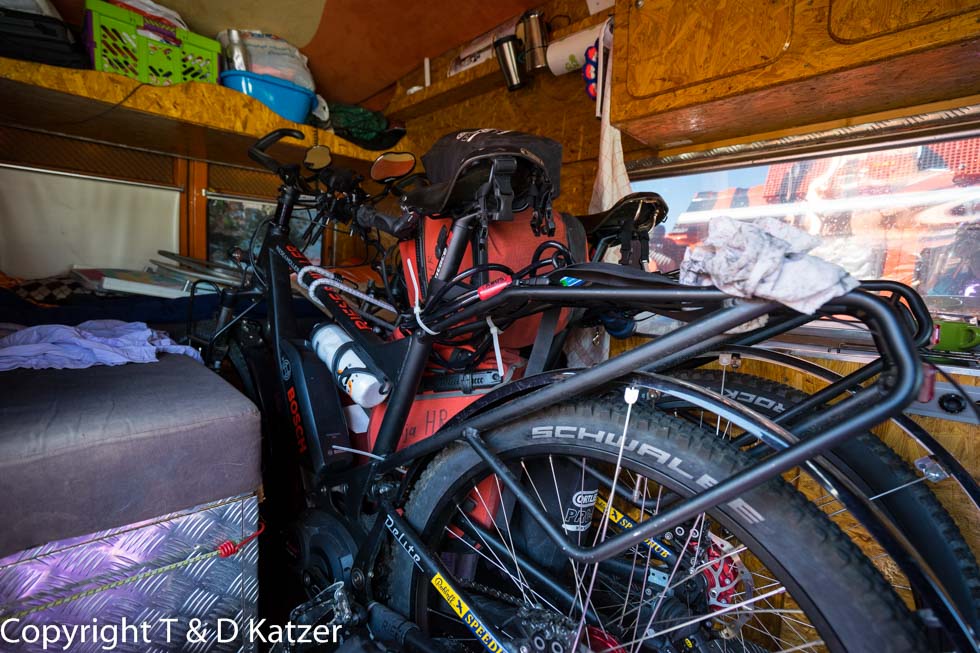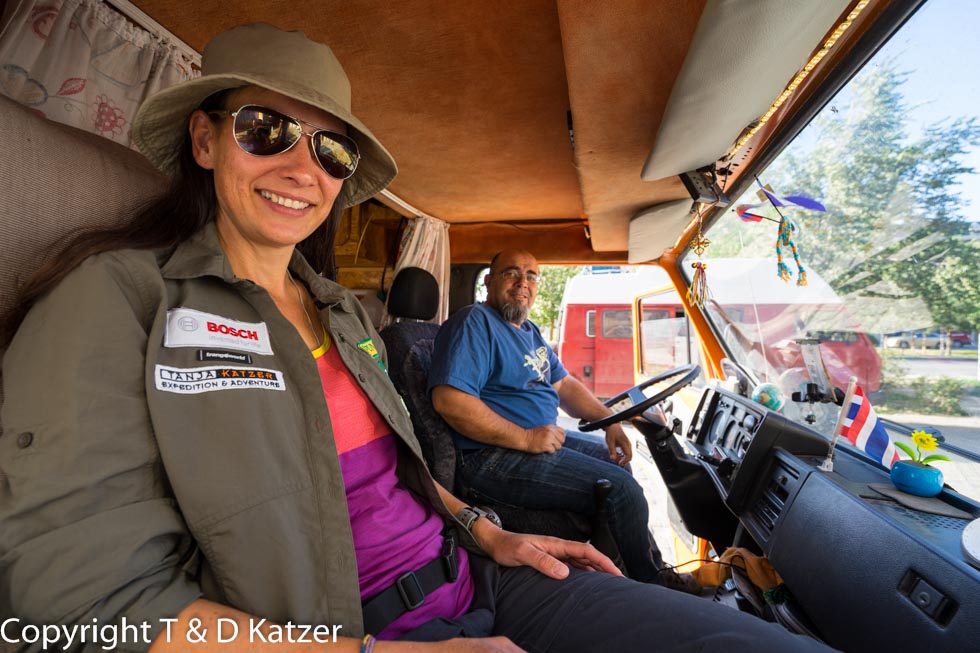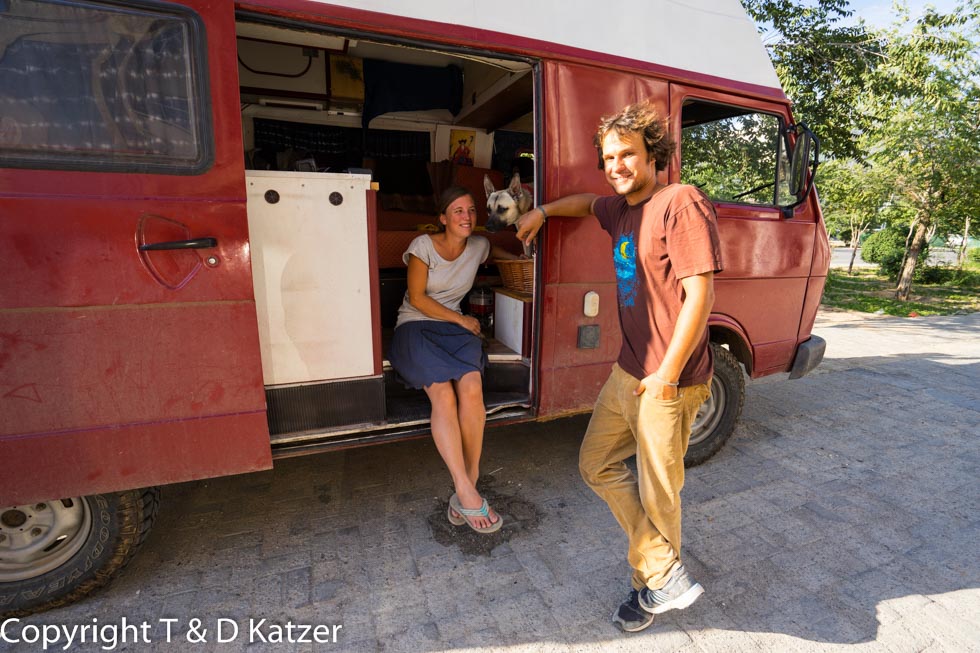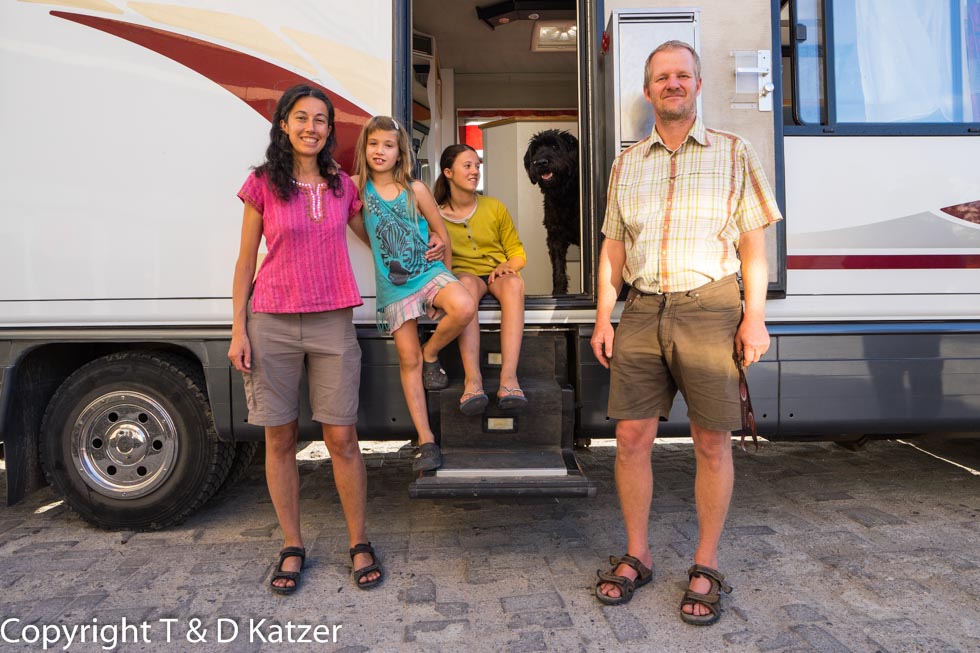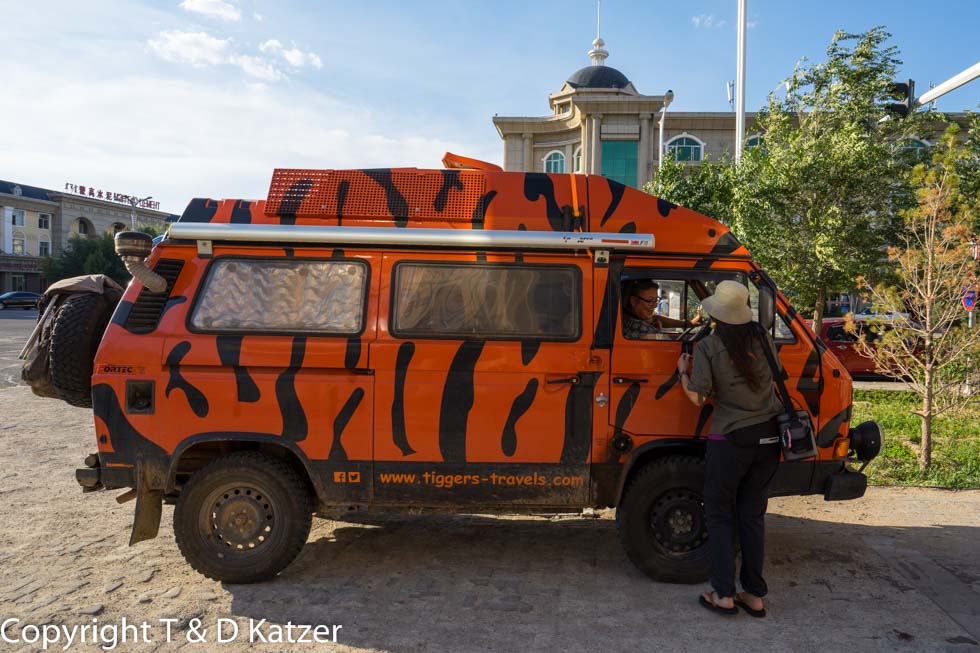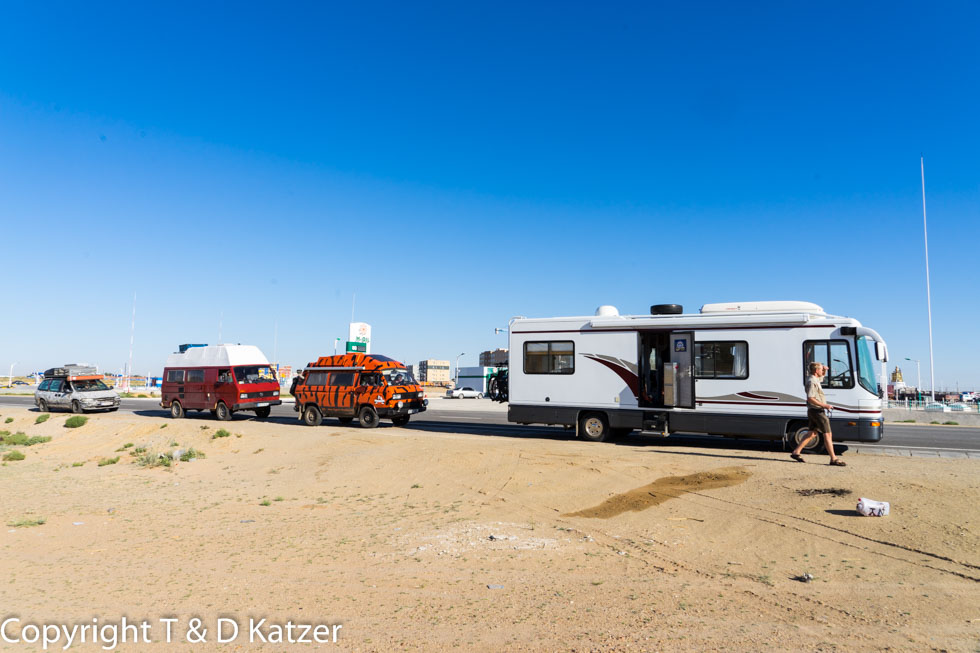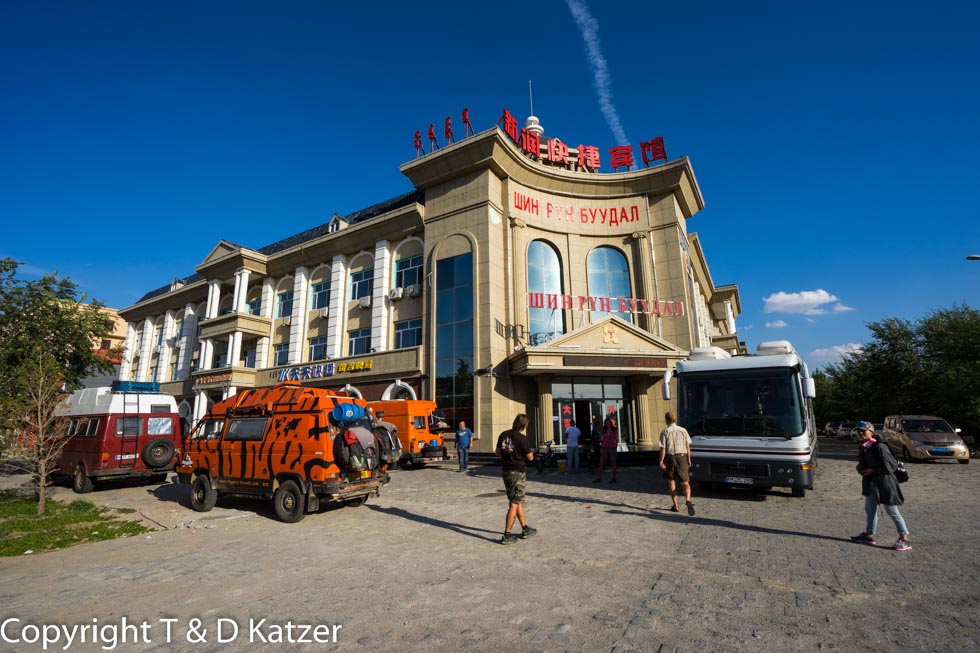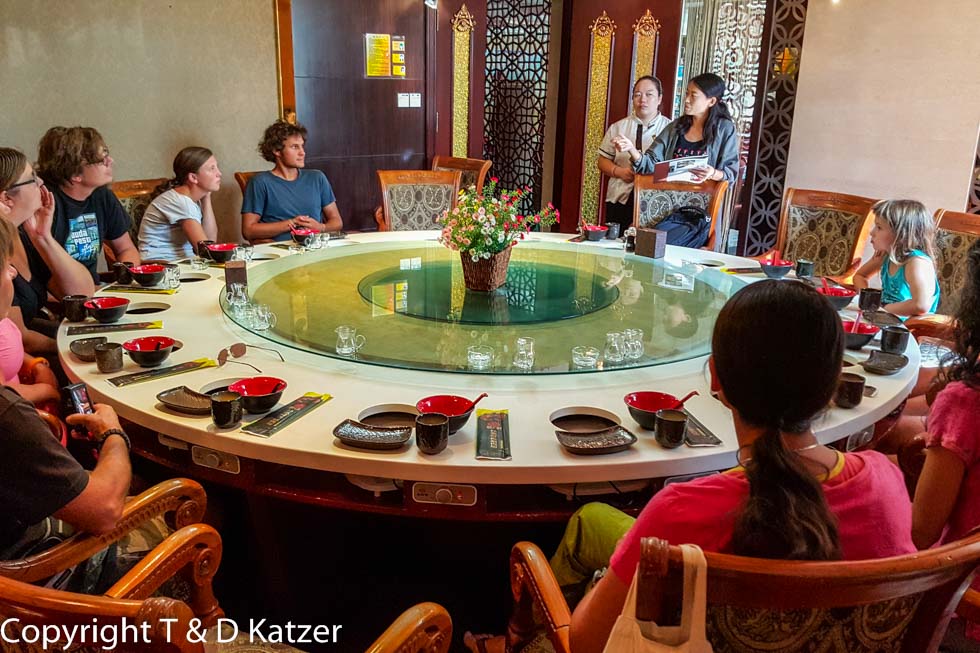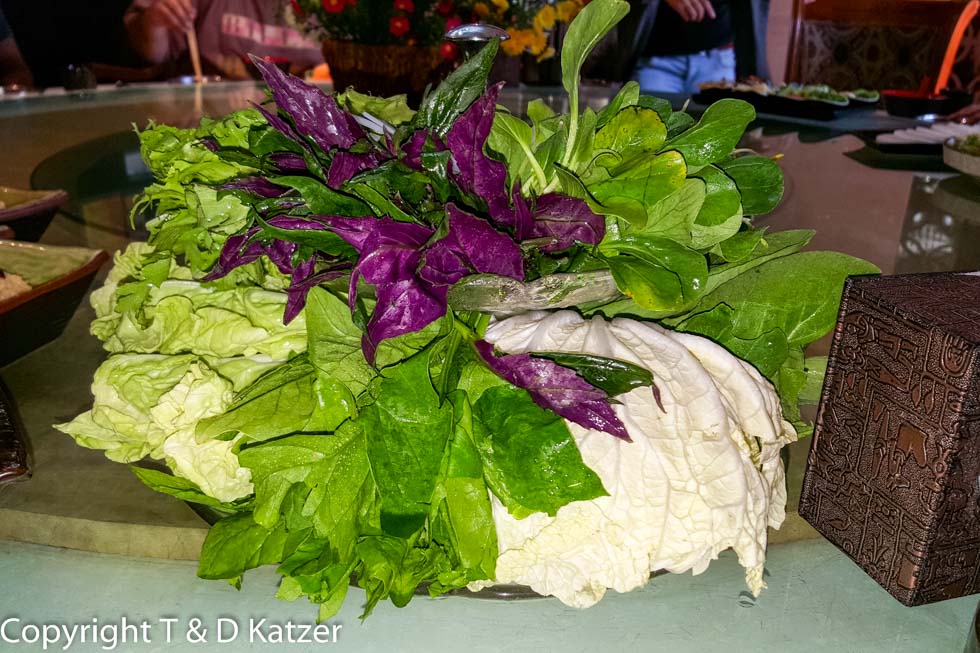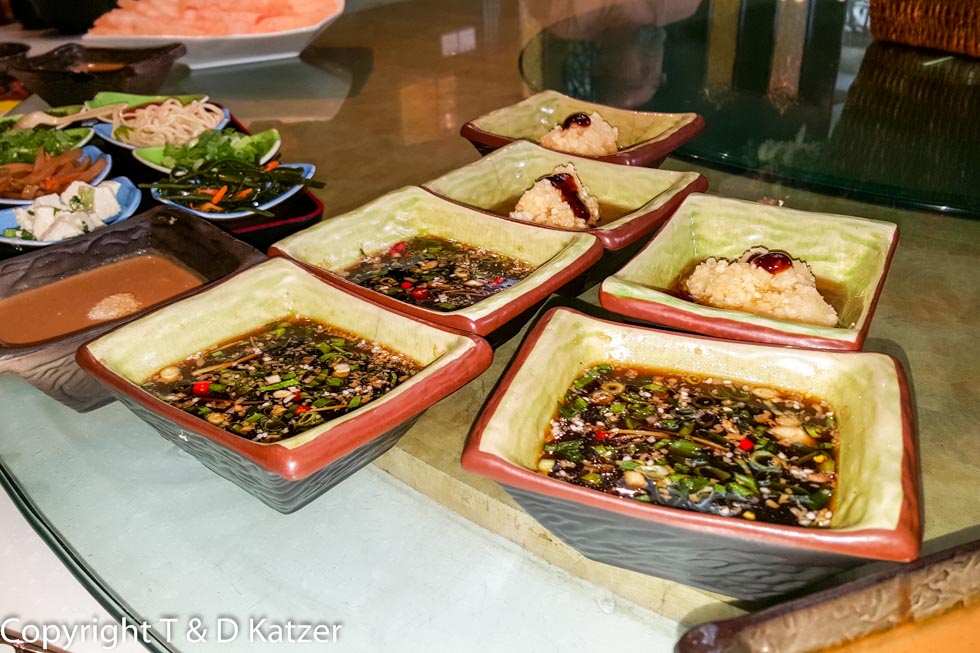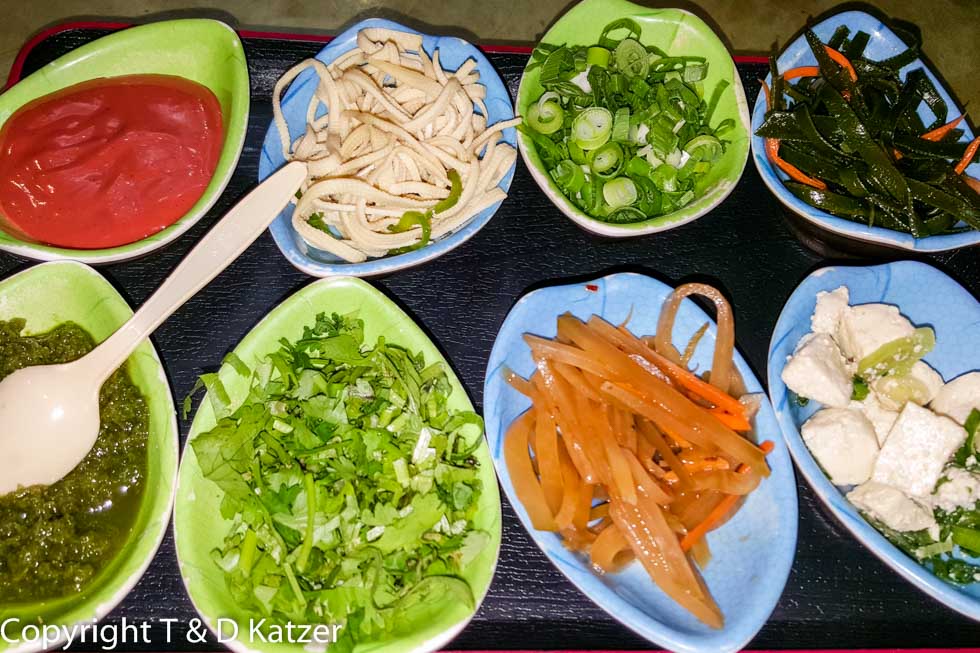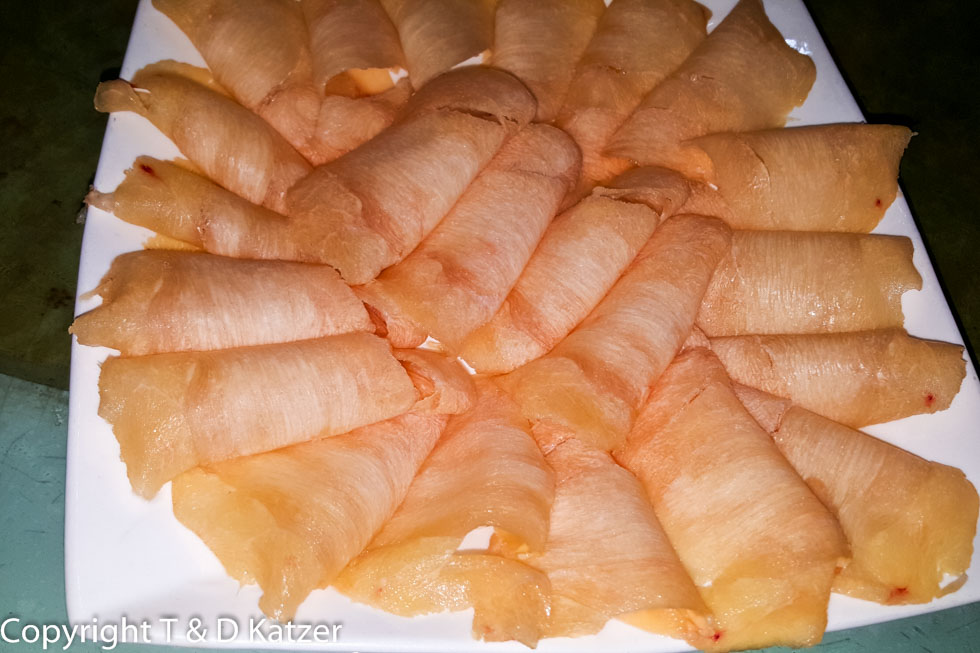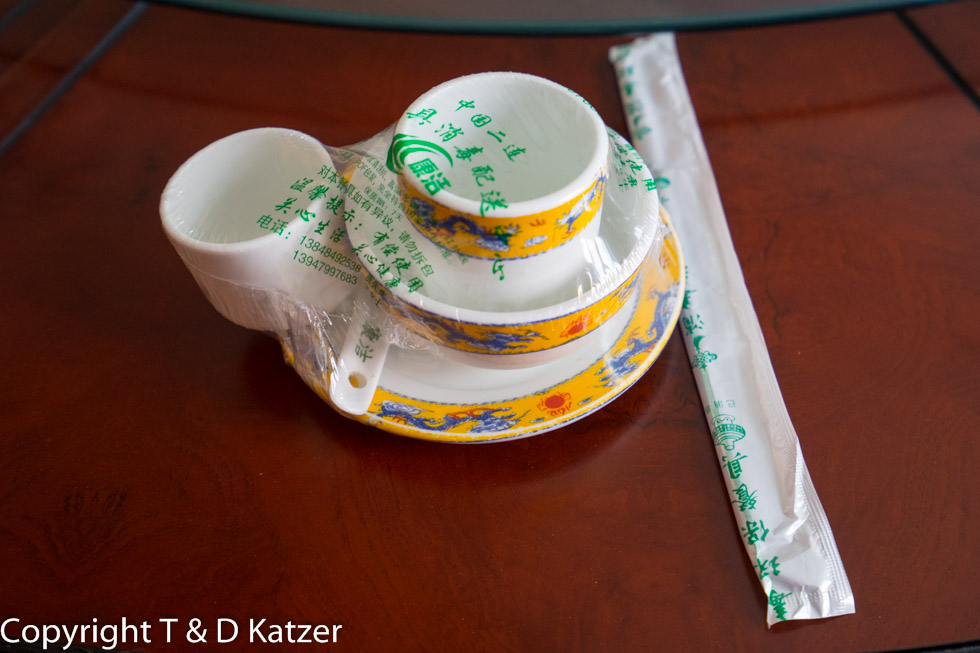
Are there miracles?
N 43°39'23.7'' E 111°58'07.2''
Date:
14.09.2015
Day: 78
Country:
China
Location:
Erenhot
Latitude N:
43°39’23.7”
Longitude E:
111°58’07.2”
Daily kilometers:
20 km
Total kilometers:
9,378 km
As the crow flies:
16 km
Travel time:
4:00 hrs.
Soil condition:
Asphalt
Maximum height:
980 m
Total altitude meters:
4.345 m
Altitude meters for the day:
15 m
Sunrise:
07:08 am
Sunset:
7:47 pm
Temperature day max:
29 °C
Departure:
10:30 a.m.
Arrival time:
3:00 p.m.
Total plate tires:
7
Plate front tire:
2
Flat rear tire:
4
Plate trailer tire:
1
(Photos of the diary entry can be found at the end of the text).
With a queasy feeling in our stomachs, we crawl out of our sleeping bags at 6 a.m. and pack everything up. For breakfast, I crumble white bread into my tea. Then we load the bikes into Jens’ camper van. “I hope I don’t lay an egg at the border,” he smiles. “If there are any problems, we’ll unload everything immediately and tell customs that the bikes belong to us,” I reply, secretly hoping that this won’t happen. “Have the Austrians contacted you yet?” “They didn’t leave U.B. until 11 p.m. but they’ll be here in time,” Jens is still sure.
The atmosphere in the camp is somehow strange, perhaps a little depressed. You can feel the tension, especially among the dog owners. Mark and Miriam are even particularly nervous because their dog ate a whole sausage this morning. “That wouldn’t be so bad,” says Miriam. “But unfortunately he also ate all the plastic packaging. We hope he won’t make a bad impression at the border and throw up at the vet’s feet.” “He’ll be fine. Dogs can take a lot. Especially when it comes to eating,” I try to reassure her a little.
At 10:00 a.m. on the dot, a station wagon blows directly across the desert sand in our direction. “That’s them! Yes, it really is them!” shout those present and are now also pleased that the last vehicle in the tour group has arrived. “You’ve been waiting for us? That’s great!” the Austrian Andrea calls out to us. Her husband Klaus, who is just waking up because he has driven a large part of the route, greets everyone with a handshake and is visibly happy to have made it just in time despite the gearbox damage.
“Let’s go!” someone shouts and the convoy starts to move. Tanja and Ajaci ride with Jens and I sit in Katharina and Peter’s beautiful luxury motorhome. We reach the Mongolian border via a detour. A fat Mongol demands 100,000 tugrik (€44.82) from Peter “For what?” asks Peter, but the unfriendly man doesn’t give him an answer. “How many dollars is that?” he asks Katharina. “We still have 70,000 Tugrik”, (31.38 €) I say, happy to be able to make a small contribution. As far as I understand, everyone else only has to pay between 50,000 (22.41 €) and 70,000 Tugrik because their campmobiles are much smaller. “He’s probably just trying to rip us off,” says Peter, annoyed at the unplanned costs.
While the drivers maneuver the vehicles to a certain section of the border, the passengers have to go through customs. I pull out my cell phone to archive a picture of the small convoy. A soldier immediately rushes up to me, wordlessly takes my smartphone from my hand, taps a few keys to delete the picture and hands it back to me. “Sorry, they’re not allowed to take photos at the border,” he apologizes. I don’t know what else is supposed to be secret in the satellite age. What do the Mongols want to hide here, apart from a few gnawed buildings? But no matter, I give the man a friendly smile and wish him a nice day. Then I run after the group. Everything runs smoothly and quickly in the check-in building. Tanja and I say “Daraa bajartai” (goodbye). “Sain jawaaraj!” (Have a good journey), the officers wish us with a laugh and before we know it we are allowed to get back into the vehicles. “He screwed us over,” says Peter and explains that the gentleman who took the money from us is on his own business. “What do you mean?” “It’s his business. He guarantees a kind of express border crossing with this sum.” “Isn’t that right?” “Yes, he did. He gave some officials money to get us through quickly.” “Well, who knows what it was good for. That way we’ll be in China early,” I say. “True, but it would have been fair if he had asked us if we wanted this service at all and not pretended that the 100,000 Tugrik was a regular fee.”
Meanwhile, we wait directly in front of the Chinese barrier, where uniformed border guards stand in shiny shoes and, who would have guessed, look at us in a friendly manner. Then an official strides up to us and greets us with the words: “Welcome to China.” Smiling, he checks our passports. “I don’t believe it. I thought the Chinese didn’t speak English,” I say. “And how friendly they are,” says Katharina. Suddenly Katharina’s cell phone rings. “Mrs. Spring has just sent an email. She writes that she can’t guarantee whether Ajaci will be allowed to go to China without quarantine. You should definitely leave our vehicles and unload the bikes when we cross the border.” “Okay, let’s do it,” I say and feel the unpleasant feeling that has been tormenting me for days about to take hold of me. Then the barrier opens and Peter drives his battleship onto Chinese soil. The vehicles stop in front of a building. We get out and try to get our bearings. As everything is written in Chinese, we let our intuition guide us and go into the building. Suddenly Mrs. Spring is standing in front of us. A small, delicate and friendly person who explains to us in good English where we should go. I greet the lovely young woman and ask her if it will work out with Ajaci. “I can’t promise anything,” she repeats. We are the only people crossing the border at this time in the modern, new reception building. Because our passports contain a six-month journalist visa and I’m worried that the officials might refuse our entry at the last minute, my nervousness is boundless. Tock! Tock! The stamp whizzes onto my passport. “Have a nice stay,” says the official in broken English and hands me my passport. “Is that it?” I ask Tanja, who is walking next to me to leave the building. “It looks like we’re in China,” she replies, looking at me with a beaming smile. “We are in China. Wow. Now we just need our Ajaci to get in smoothly. That would be a dream,” I say euphorically. “There are always miracles.” “Yes, if our dog gets through just like that, that would indeed be a miracle,” I say and ask Mrs. Spring if we should unload our bikes from Jen’s bus now?” “No, no, that’s taken care of,” her answer amazes us.
While the drivers steer their campervans through the controls, we stand together with our fellow travelers and talk about the wonderful, so far absolutely smooth border crossing. “There are bound to be a few more checks to come,” the Austrian dampens my mood. “Customs, quarantine, the TÜV and everything else they come up with,” she says. We’ve only been standing on the other side of the large check-in building for ten minutes when the motorhomes start rolling in. A man in uniform directs them to a parking space. Now a few officers actually appear and compare the vehicle numbers of the cars with the corresponding papers. “I told you that a replacement engine was installed in Elton. The number doesn’t match the papers!” shouts Jens. “Yes, and I don’t know where our number is. I’ve never seen it before,” replies another. The officers don’t seem to mind, because even if they can’t find the numbers, they wave them off benevolently and end their check. As soon as she has finished her work, Tanja and I run to Jens, in whose VW bus Ajaci is sitting. Tail wagging, he jumps out happily. “And where is the vet? Surely we have to take our dogs there now?” I ask Mrs. Spring. “Vet?” she repeats my question. “Well for Ajaci and the other two dogs?” “Your dog is through. He no longer needs to be quarantined.” “What? How? He doesn’t have to go into quarantine?” “No.” I stand there stunned and can’t believe the fantastic words that have just reached my ears. Suddenly a weight falls from my shoulders. A feeling of lightness fills my body, so that I feel like I’m going to take off at any moment. So the miracle has actually happened. If I hadn’t just witnessed it myself, I wouldn’t be able to believe it. Especially because Tanja kept talking about bringing Ajaci across the border without any quarantine. “Impossible,” I had replied again and again. “The divine ray must hit us there,” I said. “Then the divine ray will hit us. I firmly believe in it. I will manifest it with my thoughts. You know that something like this can work and that we have already experienced miracles. Why shouldn’t it work with Ajaci’s quarantine? I’m convinced we can make it work. I don’t know how yet. But we will manage it, at least with a shortened quarantine,” she kept telling me. And now it has actually happened and the “how” is really not important.
Tanja looks at me with a very happy expression on her face. At that moment, we both have tears running down our cheeks. They are tears of happiness. Tears of joy, of relief. I don’t bother to wipe them away. Everyone is allowed to see such tears. I immediately sink to my right knee in front of Mrs. Spring and thank her from the bottom of my heart. “You don’t even know how you helped us,” I say. “I really enjoyed doing that. It wasn’t easy. We were all very lucky and, above all, they all have very good papers.” We immediately rush to Katharina and Peter, our two angels, who have selflessly helped us without expecting anything in return. It is fantastic what wonderful people there are on this earth. I would also like to thank Mark for taking our dog trailer with him and I hug Jens for his courage in taking the equipment and bikes of two strangers across a tricky border. “Thank you Jens. I won’t forget that,” I say. “My pleasure,” he replies with a grin.
“So let’s go! We’re all leaving the border area together now and taking cabs to our hotel! The vehicles will stay here because the Chinese vehicle documents are still missing. We can pick them up again tomorrow afternoon!” Mrs. Spring shouts, whereupon we all walk together with the necessary luggage to a cab rank in front of the border buildings. Just a few minutes later, we reach a large, modern-looking building in the border town of Erenhot. Everyone gets a code card for their room. Compared to the Mongolian street hotels, our room is very clean and flooded with sunlight. We immediately feel at home and still can’t believe our luck. Although we had been warned time and again that it is difficult to take dogs into a Chinese hotel, our four-legged friends were accepted without any problems. Because the boiler was off, we enjoy a cold shower, then we descend the stairs back to reception where Mrs. Spring is already waiting for us. All the members of the small group of travelers follow her to a restaurant in high spirits. We sit around two expansive round tables. Mrs. Spring translates what there is to eat and tells the waiters what drinks the guests want. How wonderfully easy it is when you have a translator, it goes through my head. “What’s the name of what we’re getting here?” someone asks. “We call it Huǒguō, in English steamboat or hot pot. Although many Europeans think the hot pot comes from Mongolia, it is unknown there. In reality, its origins can be traced back to the 5th century. It originated when trekkers in southwest China mixed their leftover vegetables, threw them into a pot and ate them hot. Over the centuries, this way of preparing food has been refined and spread throughout China. Today, hot pot is a popular and very tasty dish. You can add ingredients such as slices of meat, leafy vegetables, mushrooms, wontons, fish balls, seafood, etc. to your boiling broth as you wish. Watch out for the hot sauce. They can burn their palates on it,” explains Mrs. Spring in detail and yet entertainingly. It’s really nice to have an educated tour guide, I think to myself again and wonder how we are going to travel on without her when the group leaves us tomorrow. “Tastes damn delicious”, I enthuse after Mongolia, finally being able to enjoy such a variety of different flavors.
After everyone has satisfied their hunger, Mrs. Spring, who likes to be addressed only as Spring, leads us to a large telephone store. Again we are pleasantly surprised because we were told at home that you can only get chip cards for the respective provinces and not for the whole country. It takes hours until everyone has the right chip card in their cell phone. As soon as it gets dark, I feel hungry again. Spring takes us to a small, typical restaurant, of which there are many in this neighborhood. In fact, there are so many of them that it gives the impression that a large part of the population lives exclusively from the restaurant business. By now, only the grasshopper family, Spring and we are still sitting at the table. The others are exploring the city or have retired to their rooms. “When we get back to the hotel, we’ll invite you to a bottle of sparkling wine that we’ve brought with us. We have to celebrate the happy border crossing,” say Katharina and Peter…
The live coverage is supported by the companies Gesat GmbH: www.gesat.com and roda computer GmbH www.roda-computer.com The satellite telephone Explorer 300 from Gesat and the rugged notebook Pegasus RP9 from Roda are the pillars of the transmission.
